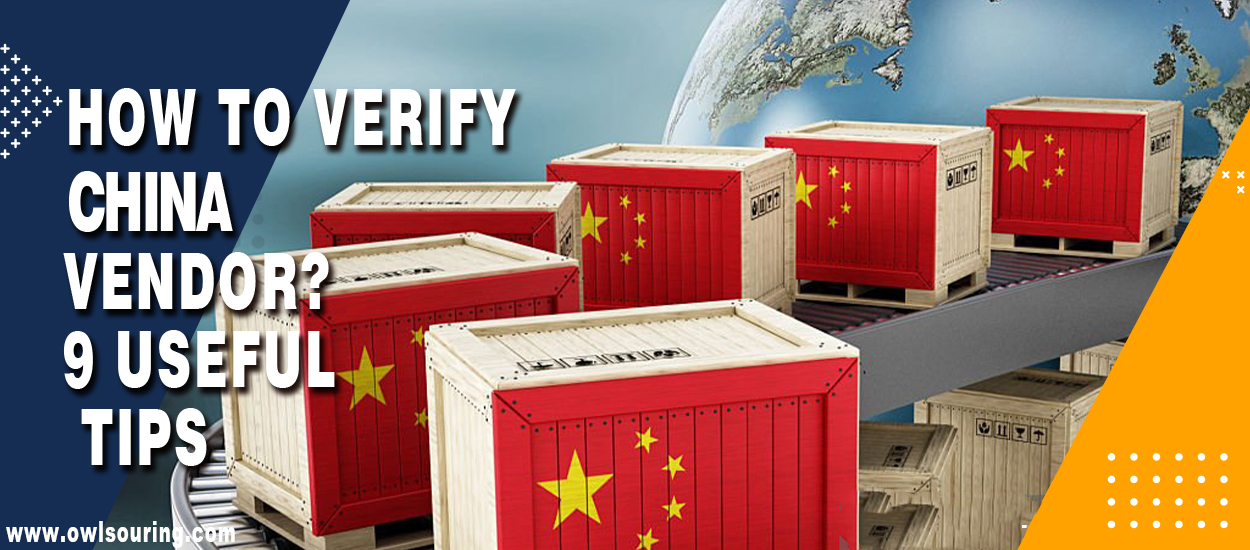Estimated reading time: 7 minutes
If you have ever tried to figure out an ideal way of doing business with a Chinese factory, whether you want to deal with them directly or go through a China trading company, you aren’t the only one.
A lot of clients have inquired about how to certify a Chinese supplier to be a factory or a trading company. In this article, I am going to lay out nine effective ways to validate Chinese factories.
Collaboration with a factory can create several benefits, for instance, a straight connection and lower costs. You can effectively handle the changes or the problems when you manufacture the components with the plant itself.
Moreover, the factory becomes the reason why there is no intermediary involved, which can lead to more competitive prices.
For the companies with the minimum requirements and who want to work with a Chinese company, they will work with a Chinese manufacturer instead of a Chinese trading company.
Despite this, it is hard to figure out whether the selected vendor representative on Alibaba or picked at the China fair is a factory or a trader. The solution to this question remains in this article.
How to Verify a Factory in China: Critical Steps
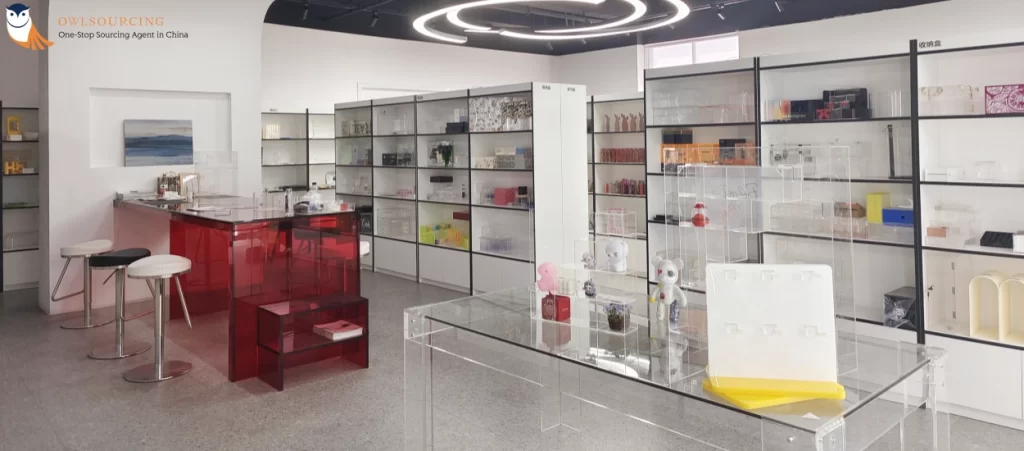
For assurance of a competent partnership with the Chinese factory, the following critical measures are necessary for verifying their authenticity and capability.
1. Do a Background Check; Verify Company Registration
- Verify Registration Details: Get the company’s registration number and legal business name. These need to be cross-checked against the official government database, such as the National Enterprise Credit Information Publicity System (NECIPS), which is maintained by the State Administration for Industry and Commerce in China. The system makes available the records of registered enterprises that are verified.
- Confirm Ownership: Ensure the company is legally owned and operated by the persons or entities they claim to be. Ownership discrepancies could mean risks such as fraudulent operations or unauthorized representatives.
- Review Business Scope: The registration document will also contain the company’s authorized business scope. Check if their declared activities correspond with the services or products they are offering to avoid dealing with unlicensed or non-compliant entities.
- Check Operational Status: Check the operating status of a company: active, suspended, or deregistered. This is important to check the credibility and trustworthiness of the company in maintaining its operations to complete orders.
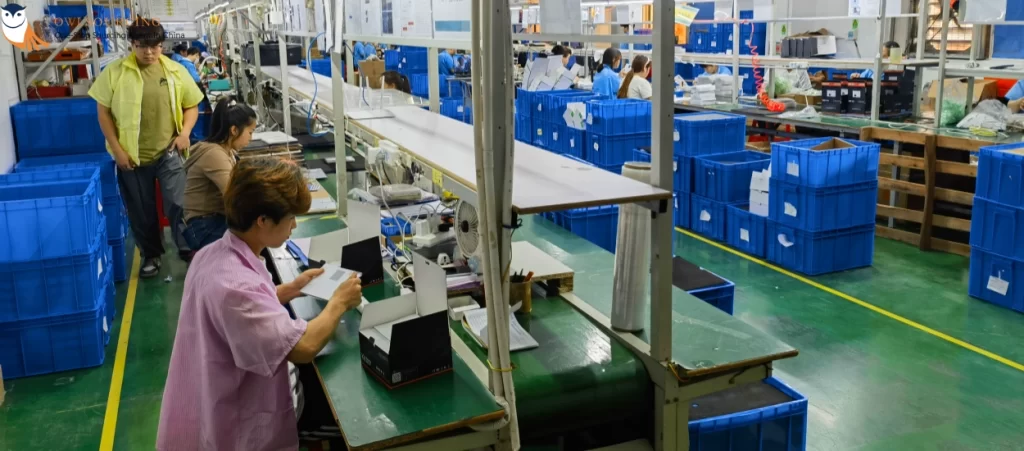
2. Conduct a Physical Factory Assessment
See the factory itself to assess production capacity, operations, and working conditions.
3. Testing of Product Samples
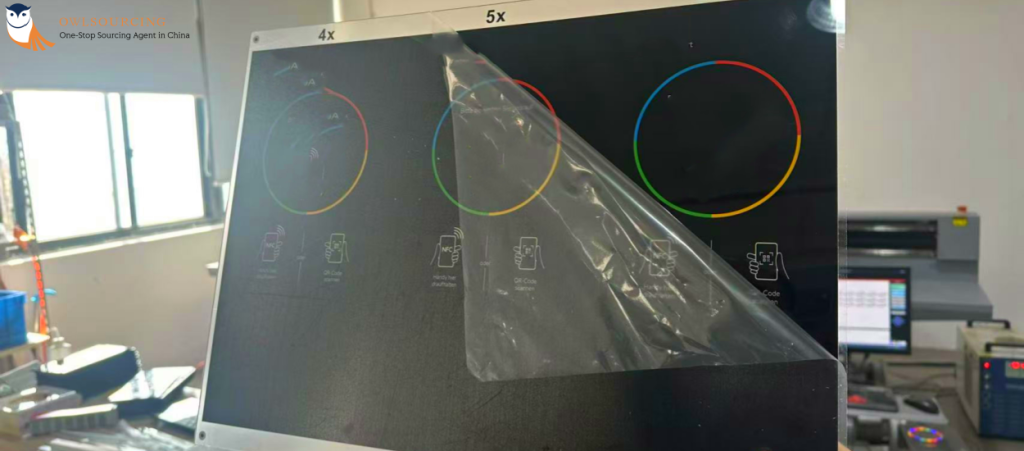
Request and inspect samples of the product to ensure the quality standard meets your expectations.
4. Check Client References and Market Reputation
Contact former clients and check the reputation of the factory in the industry.
5. Ensure Compliance with International Standards
Ensure the factory complies with applicable certifications and respects necessary regulations.
This is quite important in verifying compliance with international standards for quality, safety, and other global regulations when working with a factory in China. A more elaborative look at the process will be provided in the course of this paper.
Identify Relevant Certifications: Depending on your industry, the factory should hold a variety of certifications that prove their compliance with certain international standards. For instance,
- ISO 9001: Quality management systems
- ISO 14001: Environmental management.
- CE Marking: This is a necessity for products sold in the European Economic Area.
- RoHS Compliance: Ensures that electronic products meet hazardous material restrictions.
- FDA Approval: Required for products regulated by the U.S. Food and Drug Administration.
6. Ensure Clear Communication and Transparency
Assess how responsive, clear, and transparent the supplier is.
7. Establish Legal Agreements and Contractual Protections
Draft and review contracts that outline terms, responsibilities, and processes for dispute resolution to protect your interests.
How to Verify China Vendor?

Due diligence must be performed when sourcing from China. The most important steps are as follows:
License Verification
- Verify the supplier‘s business license on the Chinese government website.
- Verify the unique company registration number.
Expert Tip: Why do you need a business license? Once you know the business license, you can confirm the authenticity of the company, its business scope, and registered capital.
Factory Audit
- On-site, virtual, or third-party audits are carried out.
- Production capability, quality control, and industry standards are assessed.
Audit Reports
- Study the reports of the factory auditor to understand the quality control standards.
Expert Tip:
1. Audit reports are usually divided into social audit and quality audit.
2. Social audit can help buyers understand the factory’s facilities and human rights issues.
3. Quality audit helps understand the factory’s quality control process and management methods. A complete quality control process can reduce the occurrence of quality problems.
References
- References are sought from past clients and peers in the industry.
- Bank reference letters are obtained to assess financial stability.
MOQ Negotiation:
- Negotiate for reduced MOQs.
Complementary Checks:
- Catalog review
- Online verification
- Third-party verification
Expert Tip:
1. Catalog Review: This method allows you to understand the factory’s product line and design capabilities, helping you assess whether they have competitive advantages in the specific product area.
2. Online Verification: Clearly state the purpose of this method, such as conducting a virtual factory tour via video conferencing to inspect the factory’s scale and facilities.
3. Third-Party Verification: Utilizing professional third-party services can provide expert evaluations of suppliers, saving you time and ensuring a thorough assessment.
Sustaining Trust and Transparency with China Supplier Verification
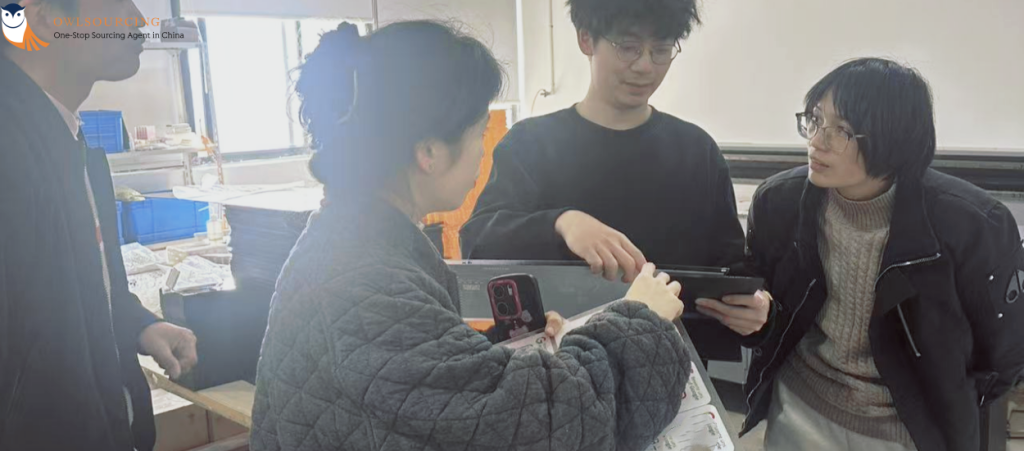
Acquiring goods from China requires verifying the legitimacy of your suppliers to deliver quality and risk prevention.
It is through the performance of a China supplier verification process that businesses can verify factories in China, screen Chinese vendor qualifications, and check company registration data.
If you want to know how to verify if a Chinese company exists, a China company verification report check or China company registration number verification is vital.
Both Chinese trading companies, Chinese vendors, and manufacturers have steps their business must follow in verifying vendors before contracts are signed.
Proper guidance can see you verify a Chinese company effectively, vet vendor manufacturers, and engage in risk-free business dealings.
Keep your supply chain safe with reliable China company verification today! Contact us now!
Tip#1: Tell China Vendor that You can Work with All Types of Chinese Companies

Please keep in mind the following information:
You can be forthright with your Chinese vendors and assure them that it’s not an issue to work with them, whether they are factories or trading companies. This will help alleviate their fears of losing your business if they are truthful with you.
Also, please inform your potential vendor that your company may send someone to conduct a factory audit or verification. As per your company policy, if the audit results do not match their claims, you will not be able to work with them in the future.
By doing so, you will have given your potential vendor face value in advance while also setting boundaries before entering into any agreement.
Tip#2: Ask Them If They Own the Factory or Work with Other factories?
Knowing whether a vendor is a manufacturer or a trading company is a crucial question.
However, sometimes the answer may not be straightforward and is referred to as a “grey answer.” For instance, the vendor might respond with “Yes, we have a factory” when asked about their business type.
To ensure clarity, it is important to confirm whether the vendor owns the factory or partners with other factories for their product. This distinction is critical.
Tip#3: Asking the Vendor for Their Business License

There is a part for describing the business scope, as you can see from the following picture, a factory’s business license should include the manufacturing type and related products. There is no such information on the trading company’s license.
The problem is that the license is in Chinese; it requires you to find someone who knows Chinese and can check for you.
Tip#4: Check Their Catalogue or Products Ranges on Their Sites
Typically, a factory will only specialize in several fields. For example, a plastic factory can produce all kinds of plastic products, plastic toys, plastic housewares, etc.
But they can’t provide other products in different materials, such as ceramic items, or paper items.

However, a trader can provide all kinds of these products, and you can quickly figure them out by checking their product lines. Unless the supplier has both their factory and trading company, they may put all the products in their catalog.
Tip#5: Check Business Type and Company Profiles
This is the easiest and fastest way to verify an actual factory or a trader, browse the vendor’s website, and then click the company profile to check the details.
As you can see, the business type from the following picture has been marked as a manufacturer, in which a trader won’t have that label.
Also, you can see the vendor’s address, if they are located in an area like Room #1608 World Plaza, they will be more likely a trader, cause most of the factories are located in some field like an industrial park.
Tip#6: Inform Them that You will Need a Sudden On-site Audit of the Factory

When you just started contacting a vendor, they would always say that they are an actual factory instead of a trader.
Sometimes it doesn’t work if you just simply visit the factory together with the vendor, cause everything can be scheduled before visiting.
You can require a sudden on-site visit to see the vendor’s reaction. If they are a factory, it’s no problem for them, and they would answer you immediately: welcome, we would also like you to have a visit.
We will make a presentation to you or something like that. If the vendor is a trader, they will find some reasons to make you stop doing that, but they may tell you the facts or the actual situation if you insist on doing that.
Tip#7: Asking Them if They Have any Available Certificates in Hands
If you got the info from the vendor that they are working with big retailers, such as Walmart and Target, you could ask them to provide the audit reports as this is the mandatory term for working with such retailers, BSCI, SMETA, SEDEX, or anything else.
You can check the factory’s name upon the reports, if it matches the vendor’s name, then they are a factory for sure.
Even ISO 9001 also works because the Chinese local trading companies usually would not apply for that, but sometimes the foreign trading companies would apply for the ISO certificate.
Tip#8: Asking for a Video Meeting to Check the Facilities
Making a sudden video meeting without informing the vendor, and asking them if they can show you the facilities, is better to check the whole factory, warehouse, production lines, and inspection process. Then you will have your impression of this vendor.

If they can’t show you the facilities, I think you have the answers already, unless they are producing some exclusive products and their facilities are super confidential and refuse to show you. That could be an exception.
Tip#9: Vendor’s Location vs. Industrial Location

It’s also a solution to verify by checking the vendor’s location and comparing with the industrial area of your products. Let me take the plastic toys and RC toys, for example.
You can easily find toy manufacturers in Shantou. If you find the vendor’s location is far away from there, it’s more likely they are a trader rather than a factory. Cause the Shantou area has the complete supply chain for those products, raw materials, tooling factories, etc.
Exception:
Of course, an exception could be there. Some large-scale vendor has their own factories and trading companies. Their factory usually specializes in some fields, and their trading company takes care of the rest of the business.
They typically run separately, but sometimes they can work together on a project. This means they may have different names and addresses, you have to pay attention to that also.
Read more for similar articles,
Final Thoughts
Have you found your answer after going through this blog? Verifying Chinese vendors is a good preparation before starting your cooperation. Of course, you can also contact us if you need it.
Leave a comment down below and share your thoughts with us!

